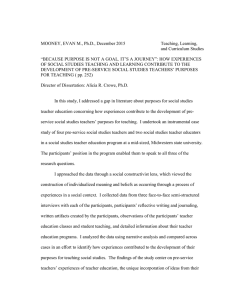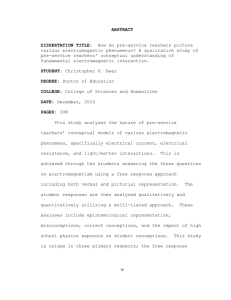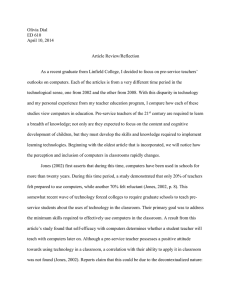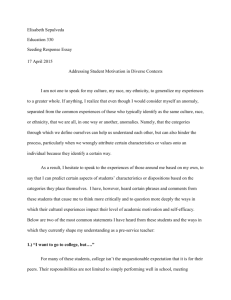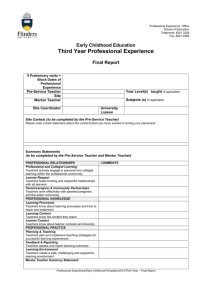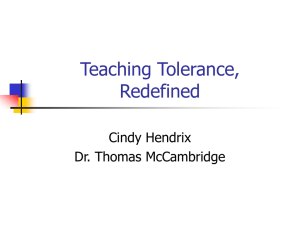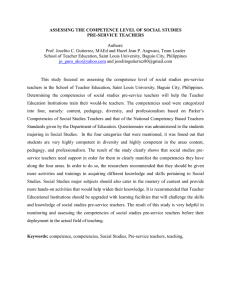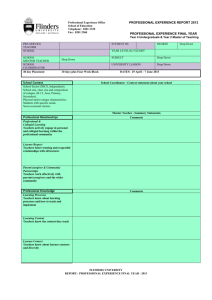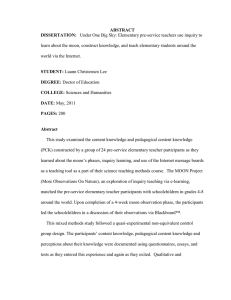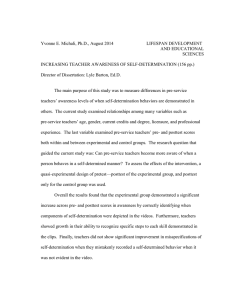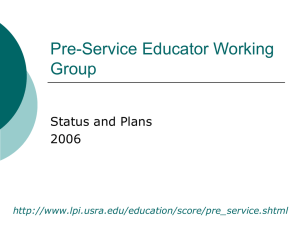KNOWLEDGE AND ATTITUDES OF BALL STATE UNIVERSITY PRE-SERVICE ABSTRACT
advertisement
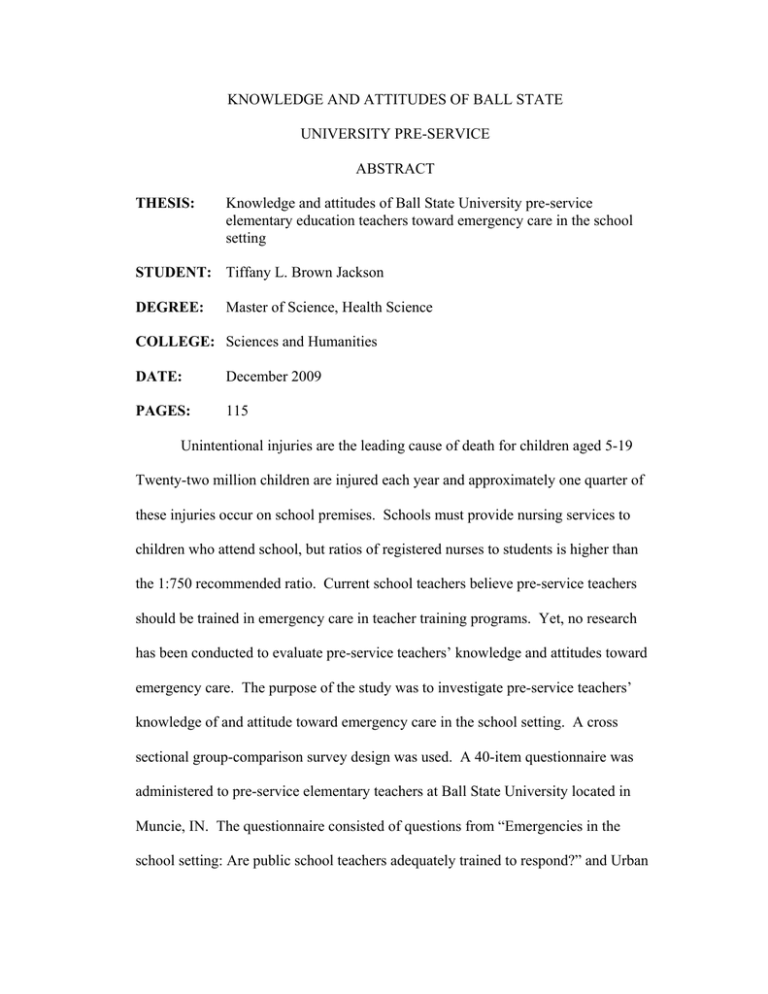
KNOWLEDGE AND ATTITUDES OF BALL STATE UNIVERSITY PRE-SERVICE ABSTRACT THESIS: Knowledge and attitudes of Ball State University pre-service elementary education teachers toward emergency care in the school setting STUDENT: Tiffany L. Brown Jackson DEGREE: Master of Science, Health Science COLLEGE: Sciences and Humanities DATE: December 2009 PAGES: 115 Unintentional injuries are the leading cause of death for children aged 5-19 Twenty-two million children are injured each year and approximately one quarter of these injuries occur on school premises. Schools must provide nursing services to children who attend school, but ratios of registered nurses to students is higher than the 1:750 recommended ratio. Current school teachers believe pre-service teachers should be trained in emergency care in teacher training programs. Yet, no research has been conducted to evaluate pre-service teachers’ knowledge and attitudes toward emergency care. The purpose of the study was to investigate pre-service teachers’ knowledge of and attitude toward emergency care in the school setting. A cross sectional group-comparison survey design was used. A 40-item questionnaire was administered to pre-service elementary teachers at Ball State University located in Muncie, IN. The questionnaire consisted of questions from “Emergencies in the school setting: Are public school teachers adequately trained to respond?” and Urban public school teachers’ attitudes and perceptions of the effectiveness of CPR and automated external defibrillators. Sub-group comparisons were made using bivariate and multivariate analyses of similar demographic, attitude, and knowledge questions. Findings indicated that pre-service teachers have a positive attitude toward emergency care, low levels of knowledge about emergency care, and a low level of willingness to provide emergency care in schools. In addition, when comparing preservice teachers who had received emergency care training to those who did not, a statistically significant difference was found in their knowledge about emergency care. Emergency care training has limited influence on pre-service teachers’ attitudes and willingness to provide care.
